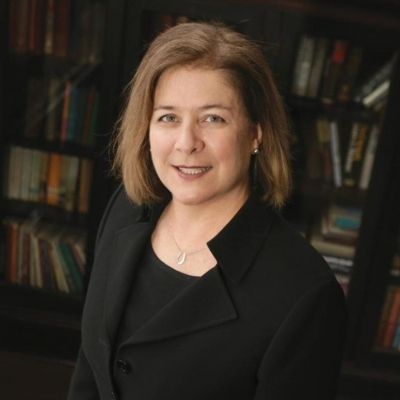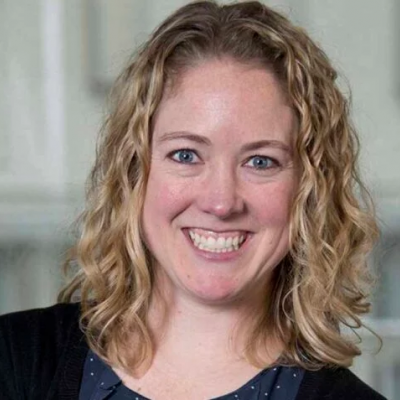As our planet inches closer to the maximum warming target of 1.5 C, signaling a point of no return, governments across the world are called upon to accelerate climate action and set aggressive greenhouse gas emissions reduction goals. This unprecedented urgency requires us to prioritize sectors where focused action will have the most significant impact.
Cutting emissions in the building sector is key to addressing the climate crisis. Buildings contribute an even higher percentage of the United States’ GHG emissions when factoring in construction materials and refrigerants. As a result, the Biden Administration has set an ambitious goal–for all new building construction and retrofits to reach zero emissions by 2030, establishing a resilient and standard practice for our nation’s clean energy future. These efforts, led by the Department of Energy (DOE), will generate savings for consumers, expand economic opportunities, and reduce climate-related financial risk. But how will this impact the global economy, and what role does industry play?
Anna Siefken, deputy director of DOE’s Federal Energy Management Program (FEMP), discusses the Biden administration’s strategy for the clean energy transition, and what it means for our future workforce. Under President Biden’s leadership, the Department of Energy is deploying an unprecedented set of tools aimed at enabling American businesses, workers, and consumers to participate in the clean energy economy. She will also explain how FEMP enables our nation’s largest energy consumer–the federal government–to leverage its annual purchasing power of $630 billion to transition its portfolio of 300,000 buildings totaling $3B square feet to carbon pollution-free electricity and its 600,000 cars and trucks to zero-emission vehicles. Learn how these programs are driving a boom in American manufacturing, creating new green jobs, fueling economic growth, and helping the United States lead the world toward a clean energy future.

Anna J. Siefken
Deputy Director, Federal Energy Management Program (FEMP) in the Office of Infrastructure
U.S. Department of Energy
Anna J. Siefken, LEED AP BD+C, has spent her career making the business case for industrial efficiency, climatetech innovation, and building performance as a means to address the world’s energy challenges and the global urgency of climate change. She is Deputy Director for the Federal Energy Management Program (FEMP) in the U.S. Department of Energy’s Office of Infrastructure. She concurrently serves as Delegate to represent the United States on Mission Innovation’s Technical Advisory Group (TAG) with oversight on Zero Emission Shipping, Industrial Decarbonization, and the Green Powered Future. Previously, Siefken was Senior Advisor and Commercialization Executive to the Department’s Office of Technology Transitions, where she championed long duration energy storage (LDES) deployment through public-private partnerships with industry. Since 2020, she has been an appointed U.S. DOE Ambassador for Clean Energy Education and Empowerment (C3E), a position she serves at the request of the U.S. Secretary of Energy.
Before joining DOE, Siefken was the inaugural Executive Director of Carnegie Mellon University’s Energy Institute, which the American Energy Society designated as among the “Top 10 Energy Elites.” She led the Institute to uncover breakthrough technologies to accelerate the transition to a sustainable, low carbon energy future. Siefken worked extensively to develop the climatetech innovation ecosystem, with aligned start-ups capturing more than $313M in follow-on funding during her tenure. Prior, Siefken was VP of Strategic Engagement and 2030 District Director for one of the largest chapters of the U.S. Green Building Council. Before that role, she was Principal and Officer at ICF, and Global Product Merchant for Energy and the Environment at The Home Depot. Siefken is a graduate of Duke University.
Ella Siefken (Introductions)
Chemical and Biomolecular Engineering
School of Engineering and Applied Science
Ella Siefken is a Chemical and Biomolecular Engineering student in the School of Engineering and Applied Science. She has three years of research and professional engineering experience focused on industrial energy generation, specifically nuclear at Westinghouse Electric Company.

Sanya Carley (Moderator)
Faculty Co-Director
Kleinman Center for Energy Policy
Sanya Carley is the faculty co-director of the Kleinman Center and Presidential Distinguished Professor of Energy Policy and City Planning at the Stuart Weitzman School of Design. She holds secondary appointments at the Wharton School and the School of Social Policy and Practice. She also co-directs the Energy Justice Lab and is a Resources for the Future (RFF) university fellow.
Carley’s research focuses on energy justice and just transitions, energy insecurity, electricity and transportation markets, and public perceptions of energy infrastructure and technologies. With the Energy Justice Lab team, she built and maintains the Utility Disconnection Dashboard. Carley is an author of the Fifth National Climate Assessment report and a member of the Innovation Policy Forum and the Roundtable on Macroeconomics and Climate-related Risks and Opportunities, respectively, for the National Academies.
Prior to her appointment at Penn, Carley was a Paul H. O’Neill Professor at Indiana University, and held administrative positions there as a Chair, Program Director of the top-ranked Master of Public Affairs program, and as Associate Vice Provost of Faculty & Academic Affairs.

